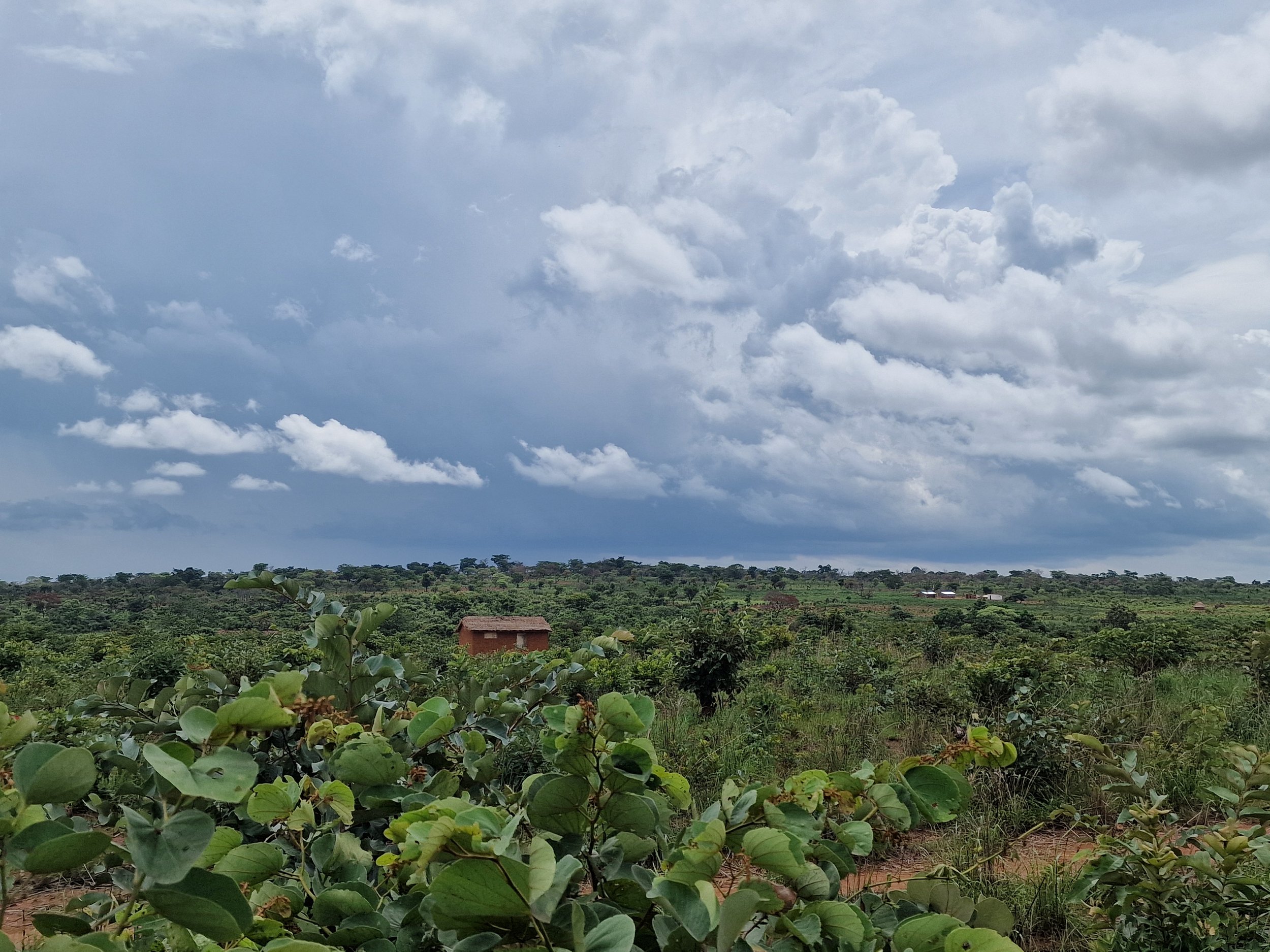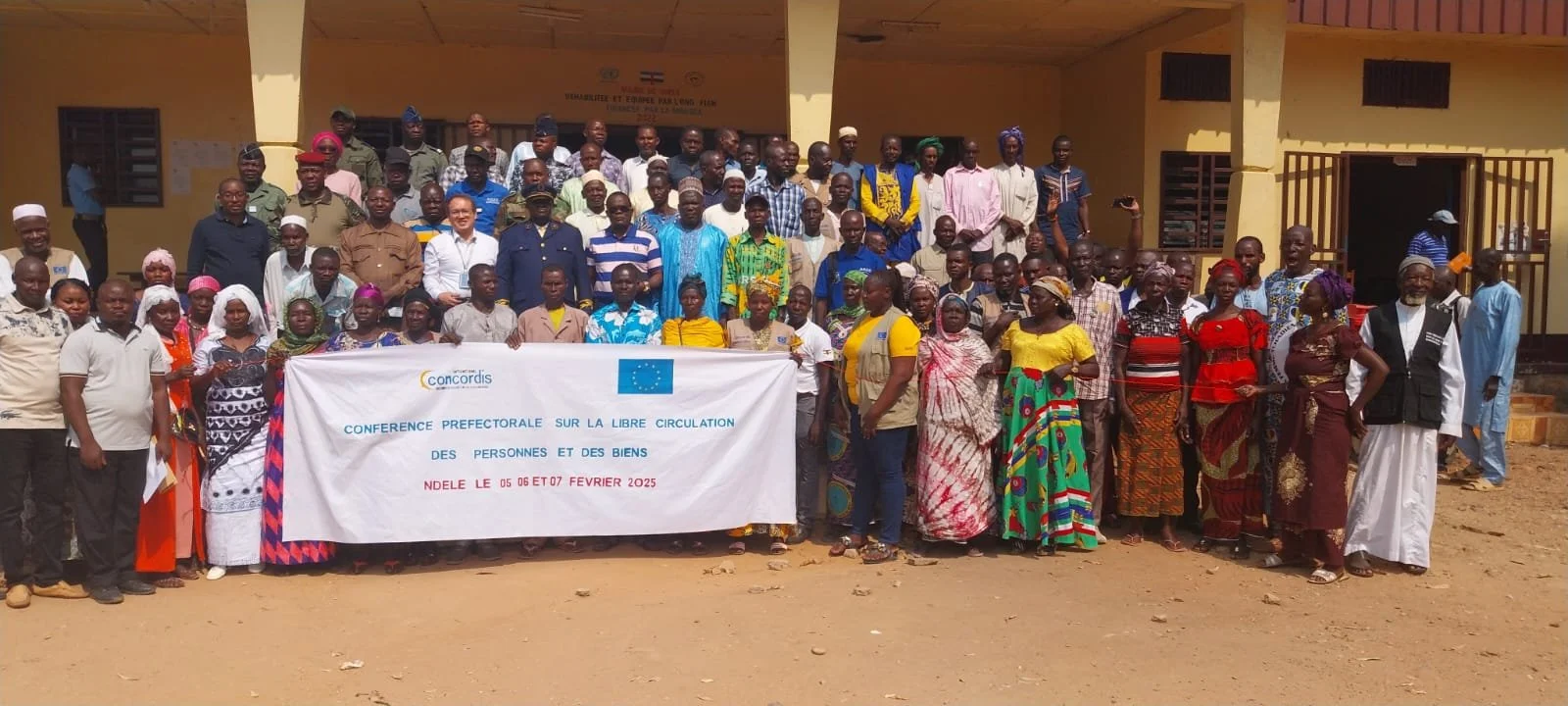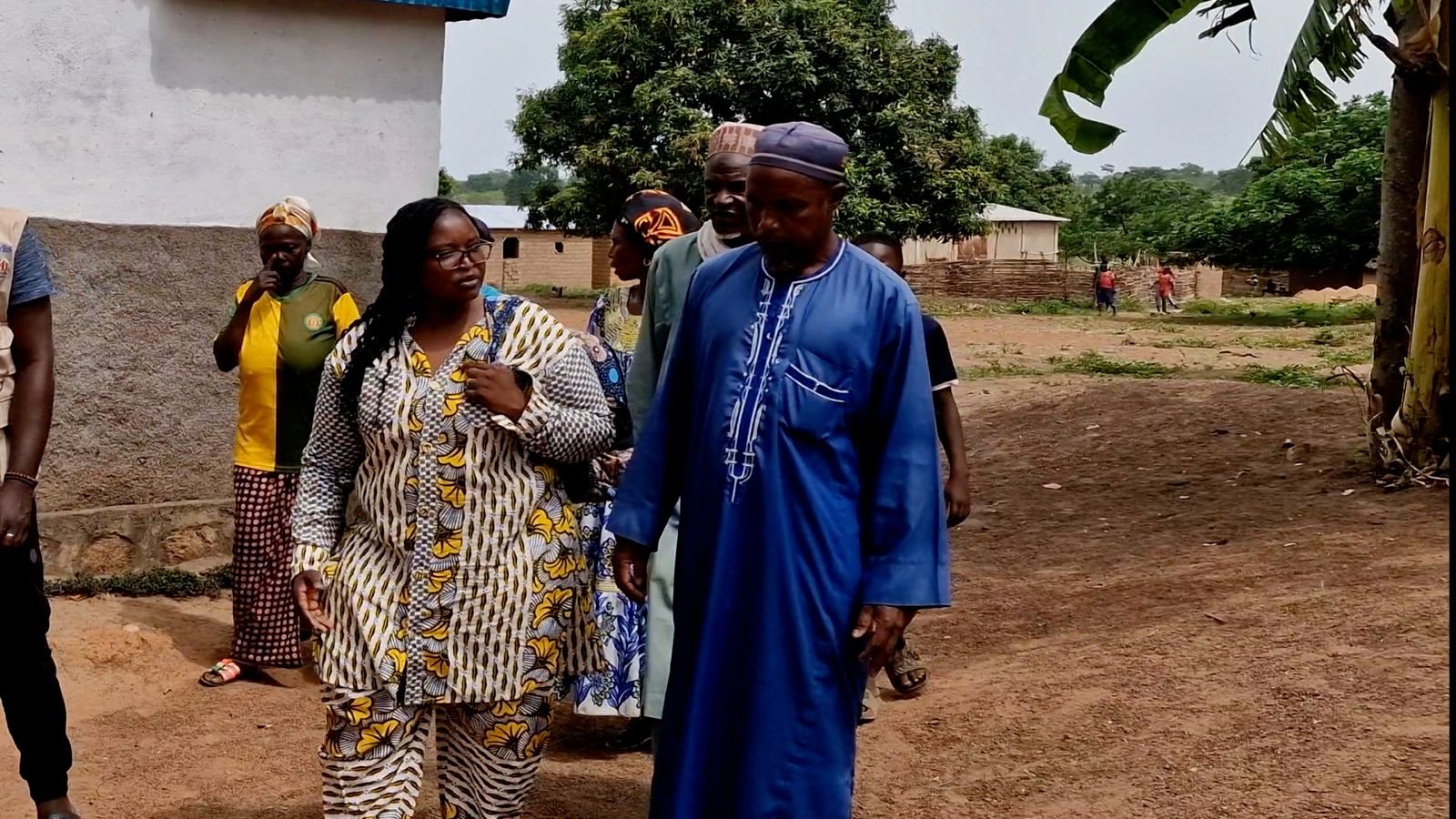
Central African Republic
"Thanks to these workshops, we women can participate meaningfully in preventing conflict and building peace in our country”
- a female workshop participant
Background
We work in the northern prefectures, which are important corridors for seasonal livestock migration to and from Chad, Cameroon and Sudan’s Darfur. It's a crucial node for regional trade, but this can also create tensions, where herders and farmers find themselves on opposite sides of armed sectarian conflict, as well as in conflict over natural resources.
In 2020-21, the CAR team completed the final year of a £1.4 million UK Aid Direct funded programme. We also secured EU funding to continue our long-term commitment to the people of CAR.
-
Societal divisions following the 2012 coup d’état and violence between ex-Séléka and anti-Balaka groups intensified historic tensions between nomadic pastoralists and settled farmers. This has been further complicated by banditry, protection rackets and fighting between armed groups.
CAR has great natural resource wealth, with diamonds, gold, hardwoods, uranium, grazing and farming. It’s long been a crosswords in the movement of goods and livestock, providing a natural market-place for trade. In theory, there should be plentiful livelihood opportunities, the government should be able to collect the revenue from these activities and provide services to the people.
The reality is rather different. Competition for these resources, coupled with violence, banditry and smuggling, divides the communities against one another, undermines livelihoods, damages the economy, degrades the environment and drives irregular migration.
Asked about the issue of conflicts linked to transhumance, Pierrot Semiba, one of the farmers’ representatives in the Advisory Group, expressed himself in these terms:
“The farmer has often been confronted with the problem of field destruction when foreign herders pass through them. To compensate for the economic losses suffered as a result of the destruction, we urged our community’s youth to attack the transhumants and steal their livestock, which led to reprisals through armed groups.”
-
In order to better address these issues, we work impartially and inclusively with a wide range of local, regional and transnational actors, analysing the situation through a participatory conflict mapping exercise, facilitating dialogue between different groups and building local capacity to ensure the effectiveness and resilience of the process.
We consult, to hear and understand. We form inclusive Advisory Groups, designing and implementing our work in a way that's accepted and locally owned. We host workshops, helping key people to recommend workable solutions to the root causes of conflict.
Consultation: We get out of the cities and into the villages along the migration corridors, where the conflict of fought and felt, asking women and men about their views, their fears and their aspirations. We spoke to over 3,000 people, either one to one or through small focus groups, to begin to understand the nuances of conflict dynamics.
Advisory Groups: We bring together a representative group of people in each prefecture to discuss these issues in more depth, getting to the root causes of individual conflicts. These women and men are not the representatives of their communities, they are a representative sample of the different interests and groups. They are key to informing our programmes, keeping them relevant to the local context and enabling the communities we’ve consulted to hold us to account. We currently have three advisory groups.
Workshops: We bring together key decision makers to address root causes of conflict and grievance identified through the consultations. The Advisory Groups are key in deciding who needs to be invited and they set the agenda. The recommendations from the workshops are informed by the consultation and agreed by those charged with implementation. They are locally owned, specific and realistic.
Advocacy: We work closely with the CAR government ministries and with colleagues from the humanitarian and development sectors in implementing the recommendations of the workshops. Our work supports the three pillars of the CAR government’s National Recovery and Peacebuilding Plan 2017-2021, notably the promotion of peace, security, and reconciliation; it’s in line with the mandate of the international community. As mediators and facilitators, we promote a collaborative approach to ensure the assistance benefits those most in need and brings “peace dividends” for groups who have decided to live together peacefully.
-
Community dialogues organised by Concordis have re-established links between pastoralist and farming communities. They have also created positive change in the behaviour of key actors of violence.
Transhumance stakeholders are committed to taking positive actions to maintain links between pastoralist and farmer communities. This is to safeguard the achievements of collaboration and peaceful cohabitation between these communities, obtained through community dialogues, mediation and raising awareness.
These commitments were developed during workshops facilitated by the advisory group with Concordis’ support. They were ratified in the Paoua agreements of December 6 2019, the Bocaranga agreements of March 11th 2020, and the Lia agreements of May 2020.
Among these commitments, all parties pledged to advocate dialogue to resolve their differences peacefully. The herders have accepted to respect the transhumance corridors, to pay the communal grazing taxes and to pay compensation for the destroyed fields.
Agreements were also made between Chad and CAR on taxation of herders, and between armed groups, the army and UN peacekeepers on security protocols.

Featured Stories
Conservation and peace in Central African Republic
Even before the outbreak of civil war in the Central African Republic more than a decade ago, issues like poaching, wildlife trafficking, and armed violence have threatened both wildlife and local communities in the country’s national parks and protected areas. While perhaps not immediately obvious, efforts towards forging peace are intertwined with protecting the environment. As part of its peacebuilding work, Concordis has been bringing together local settled communities, herders, and ecologists to address these challenges and try to find a common vision of peace.
Food Security as a Peacebuilding Tool
In the North of the Central African Republic the cassava root is more than just a crop—it's a lifeline. Farmers like Sidonie face daily challenges to protect their produce from animals and conflict. But thanks to new drying facilities being built by Concordis, communities will be able to safely process and trade cassava—tackling food insecurity, generating livelihoods and promoting peace between communities.
Vaccinating cattle in the Central African Republic
In a region characterized by seasonal migration, where the movement of sick animals across borders can spark conflict and mistrust, our vaccination campaign ensures animal health, strengthens community livelihoods, and fosters social cohesion among local farmers, migrant herders, and Sudanese refugees.










